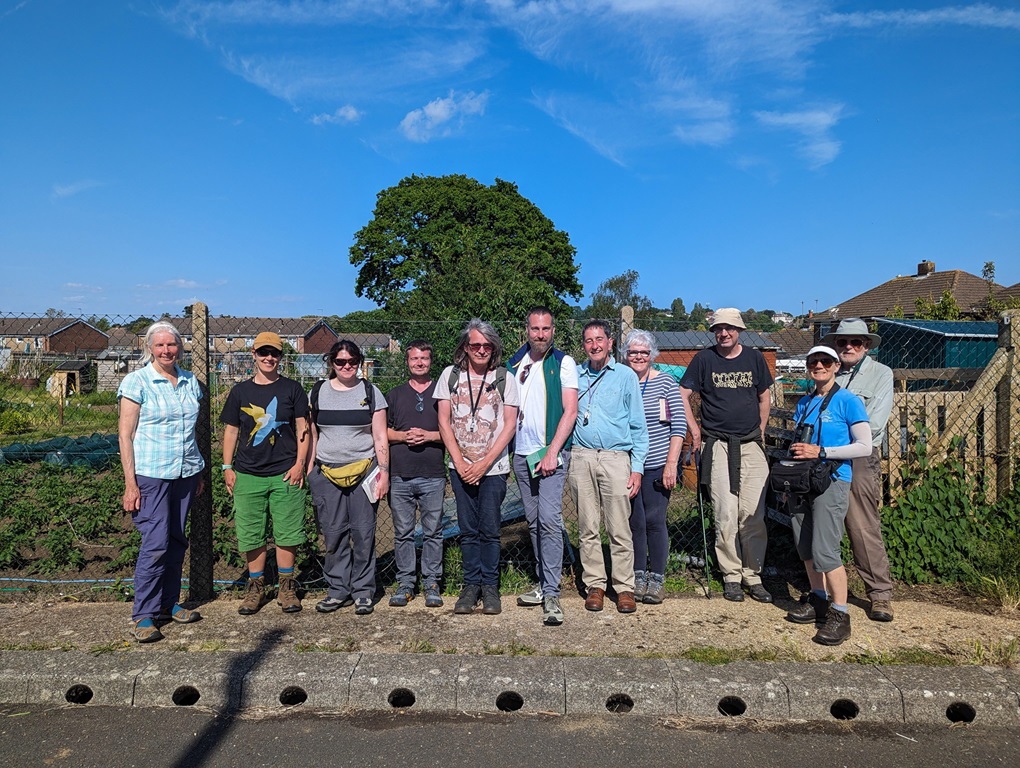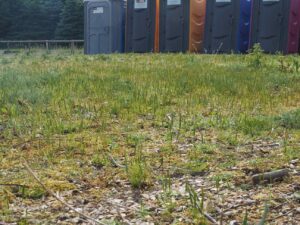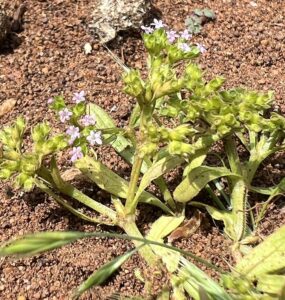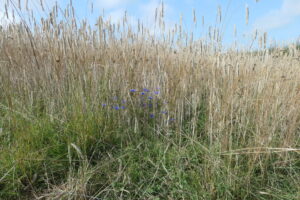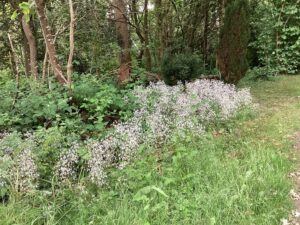2024 County Report for Isle of Wight
Colin Pope
2024 commenced with our New Year Plant Hunt which we held at Ventnor on the southern coast of the Island. We held a total of eleven meetings throughout the year, including our winter indoor meeting. Meetings are organised through the Isle of Wight Natural History & Archaeological Society but BSBI members are welcome. We also hosted a BSBI weekend meeting in early June which enabled visiting mainland members to enjoy our rich flora. Here we are (below) after visiting Lake Allotments, one of the original sites for Fumaria reuteri (Martin’s Ramping Fumitory).
We carried out a survey of Spartina maritima (Small Cord-grass) on the MOD saltmarshes of the Newtown estuary and were able to establish that the population is doing well and there has been no perceptible change from the last survey 25 years ago. The plant is abundant over some 7ha making this the most important site for the species on the south coast of England. Unfortunately, the upper saltmarshes here have been subjected to very heavy sheep grazing and trampling. Fortunately, the Spartina maritima survives on large middle saltmarsh islands which are inaccessible to livestock.
We were involved with an innovative scheme to treat grey water at the Isle of Wight Garlic Farm where waste water from the restaurant, shop and other tourist facilities is gravity led to a field where it passes through a series of parallel ditches planted with native aquatic species to eventually emerge as potable water used for crop irrigation by biological digestion. We advised on the choice of appropriate species and provided local native aquatics and we will be monitoring the site over the coming years. One interesting and unexpected observation was the release of an arable seed bank when the ditches were created in arable sandy soil. With the availability of water, the growth of plants such as Misopates orontium (Weasel’s-snout), Centarea cyanus (Cornflower) and the two Kickxia species (Fluellens) was remarkable.
We have also just embarked upon two projects with Ventnor Botanic Garden to collect and propagate Juniperus communis ssp. communis (Juniper) and Populus nigra ssp. betulifolia (Black Poplar).
